By: Hannah Gillespie

Throughout the Bible, God uses small things to accomplish big plans. We see this in the famous tale of David and Goliath. David selected five small pebbles, such a small and insignificant object alone. But David’s faith in God allowed him to accomplish what seemed impossible. Through God, David was able to defeat the giant and save Israel from the Philistines.
Around the world, A Rocha communities wield small things to make a big impact, whether providing resources for rural communities or studying endangered species. A Rocha’s new short film, “Am I Too Small To Make A Difference?” highlights the work of our worldwide community and demonstrates that taking even small actions can make a significant impact.
Read on to learn more about some of the “small” endeavors for conservation around the A Rocha family:
A Rocha Peru: New Micro-Livestock Breeding Initiative
In September of 2022, La Libertad Dry Forest Project provided guinea pigs to beneficiary households in the Pacasmayo province of Peru. This initiative hopes to address food security in the rural area. Guinea pigs not only provide a protein source, but their manure can be used to fertilize agricultural fields and gardens.
A Rocha Aotearoa New Zealand: Reported Record Number Ōi Chicks
The 2022 season proved to be very successful in monitoring the Ōi, a seabird also known as grey-faced petrels.
A Rocha Aotearoa New Zealand engaged in ongoing seabird monitoring at the Karioi Project, spanning 53 burrows. The Karioi team also increased camera monitoring and predator control around these burrows during this critical time period, through trapping and bait station operations.
Largely due the long term invasive predator control in the area, there was a record number of 12 Ōi chicks confirmed during the winter breeding season. The Karioi Project reported that this brought the total number of seabirds fledged from Kairioi since 2016 to at least 47 Ōi chicks and 4 Kororā, or little blue penguins.
Click here to watch monitoring camera footage showing juvenile Ōi chicks spreading their wings and preparing to launch themselves into life at sea.
A Rocha Canada: Rediscovering Salish Suckers
The Salish sucker is a small freshwater fish native to southwestern British Columbia and northwestern Washington state. The species is on the British Columbia Red List and was once believed to be locally extinct in the Little Campbell Watershed until 2011, when an A Rocha Canada intern rediscovered the species.
Since this discovery, A Rocha Canada has maintained a long-term monitoring project of the Salish sucker in the Little Campbell Watershed. The team conducts trap surveys and notes key locations in partnership with Pearson Ecological and Fisheries and Oceans Canada’s Habitat Stewardship Program for Species at Risk, to inform species management and habitat. [For more information on those reports, click here.
A Rocha Lebanon: Preserving Traditional Beekeeping Methods
For nearly fifty years in Lebanon, traditional methods of beekeeping have been abandoned and are at risk of being forgotten. To protect this knowledge, A Rocha Lebanon identified three traditional methods—rammed-earth hive, ceramic hive, and hive plaited with reed—along with detailed building instructions. The modern method used exclusively by Lebanese beekeepers, the Langstroth beehive, requires imported materials. With shifting economic circumstances in Lebanon, these materials are now much more expensive, making the return to traditional methods all the more important.
A Rocha France: Hermit Sightings in Les Courmettes
In 2022, The A Rocha France team in Les Courmettes launched a study on a rare nocturnal butterfly known as “the hermit” for France’s National Action Plan on butterflies.
Chazara briseis, the hermit butterfly, is under threat both regionally and nationally in France. Adults emerged from mid-July to mid-August and the Courmettes team was able to spot 82 hermit individuals during this time.
Their study uses mark-recapture to focus on population size, average lifespan, distance of travel, and site use. The team is analyzing data now and hope to compile their findings with regional data for a population genetics study. Learn more about their preliminary findings through the link above.
Just outside of one of India’s largest cities, Bangalore, lies Bannerghatta National Park. This area is home to people and nature alike, including endangered plants and animals. The city’s sprawling growth leads to human-wildlife conflict and threats to wildlife habitat.
Poor waste management systems, through the open disposal of organic and untreated waste near the forest villages, attracts feral animals and leads to unsanitary conditions.
Wormeries provide a safe alternative to waste management that improves the hygiene and sanitation of rural communities, while improving the health of the soil. In turn, the compost can be sold to provide supplementary income for local families. You can provide the gift of a wormery through the A Rocha shop linked above.
A Rocha Uganda: Fruit Trees for Schools
Uganda’s forests provide habitats for many native plants and wildlife, supply clean air and water, and support the livelihoods of local communities. 122,00 hectares of forest are currently being lost each year in Uganda, due to encroachment, unsustainable farming practices, urbanization and tree felling for timber, firewood and charcoal burning.
A Rocha Uganda is working with schools and community members to plant fruit trees such as mango, orange, avocado and guava. In less than three years, these trees will provide food and improve the health of local children. In the meantime, they offer environmental benefits, such as improving soil and water quality and restoring wildlife habitats. You can give a fruit tree to an Ugandan school through the link above.
These stories display that God uses the power of small things. A Rocha’s work around the globe would not be possible without donations, large and small, from people like you.
We hope this inspires you to take small, yet meaningful, steps to care for creation. Join us in watching the video and learn more about the power of “Small” in our discussion guide.
Share it with your church, school, Bible study or youth group and see how God uses your small actions for his kingdom.


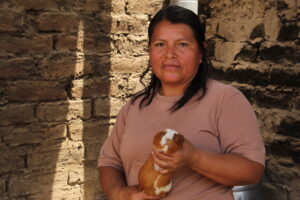

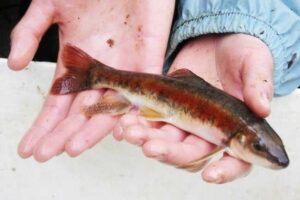
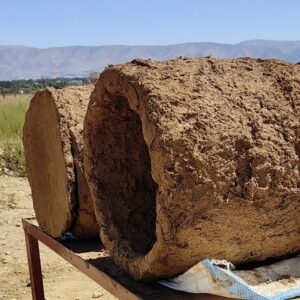
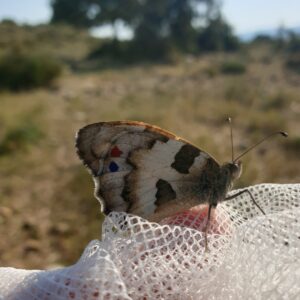
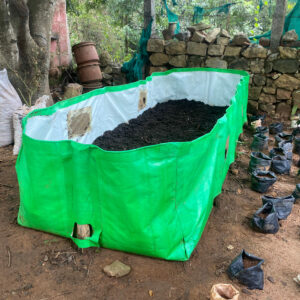
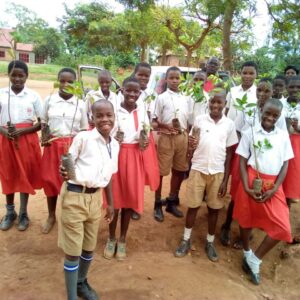








I love this reminder. It is encouraging to keep on keeping on with the local small things…………
This is beautiful. I love the video. This very closely parallels what God has been teaching me. Just as a mustard seed starts small but grows into something far greater than we could ever imagine, so our tiny efforts at being faithful have much more impact than we realize.
Thank you all for your work and for your faithfulness!